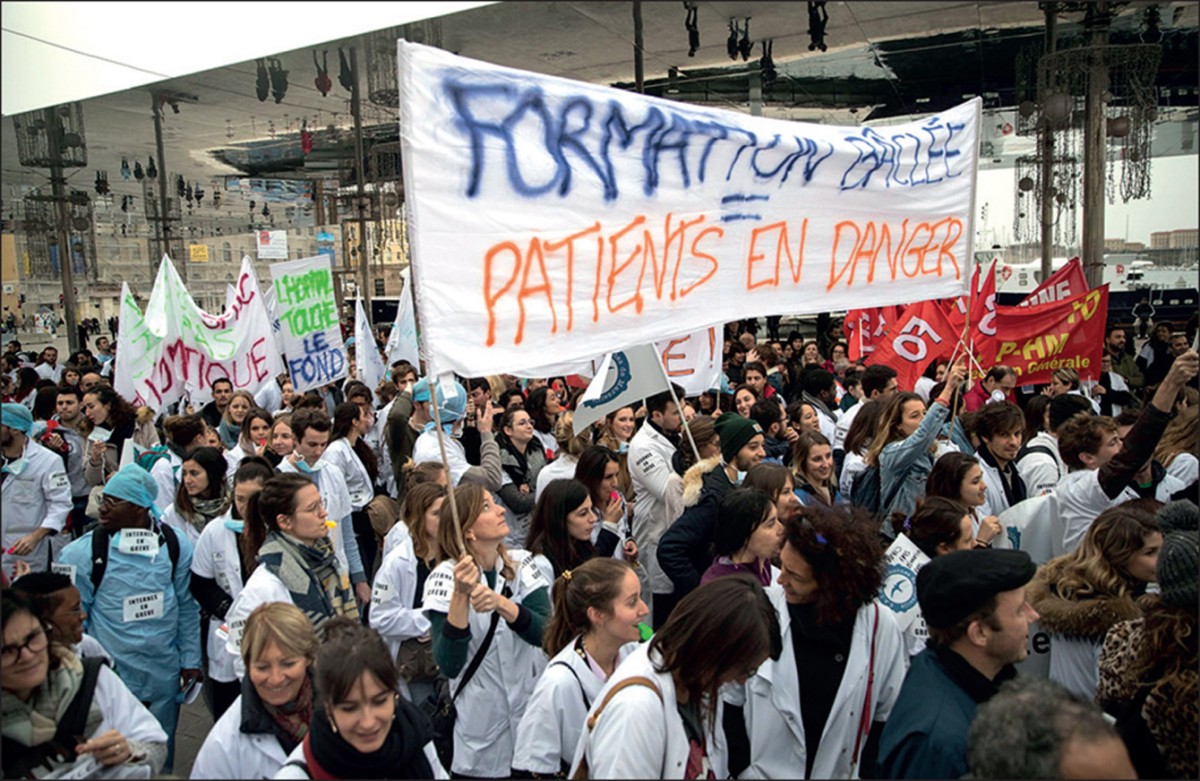 119
119
Practically in all nations, the healthcare sector accounts for a significant portion of their annual budgets, and there is a strong correlation between the efficiency of the healthcare system and the economic status and financial prosperity of each country, or, au contraire, its instability and decline.
France has been experiencing several challenges due to unbridled inflation, a sluggish economy, spiralling debt, and pervasive unemployment, all of which contributed to France’s deplorable healthcare system.
According to a 2011 study by the Institut national de la Statistique et des études économiques (Insee), socioeconomic inequality in healthcare in France contributes to a seven-year life expectancy disparity between low-income male workers and senior managers while life expectancy ranging from three years for females.
These growing social tensions in an ageing society, worsened in recent years, are influenced by a variety of socioeconomic factors, including healthcare deprivations, housing crisis, lack of job security, and educational opportunities.
According to a study on medical inequality in 2017, sponsored by La Direction de la recherche, des études, de l’évaluation, et des Statistiques (Drees), 8% of the French population (roughly 5.3 million citizens) were medically disadvantaged.
These horrible prejudices are mostly caused by the fact that certain places are less popular among physicians to provide medical services. For instance, rural areas and poor and vulnerable urban neighbourhoods have the longest waiting lists for general practitioners.
“No sector is immune to the negative ramifications brought about by skyrocketing inflation and detrimental government policies, as public hospitals are in dilapidated condition due to a lack of financial resources,” said Pierre Wach, chairman of the La Confédération Générale du Travail (CGT) in Strasbourg’s eastern city. Laurent Berger, head of the powerful Confédération Française Générale du Travail (CFDT), urged politicians in the left-leaning “Libération” newspaper: “The time for thinking and researching to solve the matter has passed, and the country’s hospitals are almost out of service because of the government’s policies.”
Thomas Mesnier, a member of the French Parliament close to Macron who is also an emergency physician, wrote in Le Journal du Dimanche: “We need to be on crisis management alert in terms of staffing and conditions in French hospitals.” Furthermore, Fédération Hospitalière de France (FHF) studies have recently indicated that 99% of French hospitals have a chronic or intermittent shortage of trained medical staff.
Recently, the workers of the health, social, and socio-medical sectors went on strike and marched in many French towns. Thousands of protesters gathered outside the Paris City Hall, where they drew attention to their sectors’ poor working conditions and lack of resources by chanting for immediate reforms.
Protesters also wanted the “Secours Populaire Français” insurance premium of €83 per month, which presently only applies to workers in the health, social, and medical sectors, to be made available to employees in all sectors.
Hence, it is essential to highlight that the French health crisis is a direct outcome of the country’s poor economic situation. Consequently, these two crises reinforce one another and act in tandem. The utterly disastrous policies of Macron in recent years have precipitated a significant decline in life expectancy in France.
In conclusion, a lack of adequate healthcare leads to lower work efficiency and poor life expectancy, which hamper adult education, bring down productivity, and damage France’s already moribund economy.
Comment
Post a comment for this article